Better to pay cash or get loan to build custom home?
My custom home blueprints are (finally!) completed and I'm interviewing the third builder prospect. I have bids in hand from the other two. The lot is paid for. I'm pre-approved for a construction loan (aka temp to perm financing or one time close). My plan had been to put the necessary 20% down and finance the balance. However, now I'm considering borrowing from my non retirement savings to pay for the house and will replenish with the proceeds from selling my current home after I move. I don't want to move twice otherwise I would sell sooner to get the cash out. The freedom of not having a mortgage and avoiding the 8-10K in loan approval/closing costs is appealing.
I have 2 questions: Have you been in a similar situation and what considerations tipped you one way or another? The 2nd is: What provisions need to be in the contract with the builder to pay him/her as the various stages of the building are completed? Is the money put in an escrow account to be drawn from and who/what conditions determines when that money is due? Do I need a building inspector to act on my behalf to protect my investment since there won't be a mortgage company/bank involved?
Comments (38)
renovator8
11 years agolast modified: 9 years agoIf your savings earn substantially less than the mortgage costs minus the tax breaks, it makes sense to avoid a mortgage.
Any standard Lump Sum construction contract will have a compensation section that describes the total contract amount and the time and amount of progress payments without the need for escrow. However, the builder might want some evidence of your ability to pay those amounts before your current house is sold. Sometimes a "retainage" amount is withheld from the payments and then reduced as the work nears completion. You should always owe the contractor something until the punch list is completed to your inspector's satisfaction.
You should decide now who will propose the initial contract. A builder's proposal is sometimes considered a contract but often lacks important considerations especially protections for you. AIA A105 "Standard Form of Agreement Between Owner and Contractor for a Residence or a Small Commercial Project" is a good place to start. You can buy the printed form from the AIA or use it to make sure the contractor's contract is complete. All AIA contract forms naturally have a provision for an architect to be named. The architect provisions can easily be struck out and you might also substitute the name of your inspector as your agent. It is not necessary for your agent to formally approve the contractor's Applications for Payment, have the right to reject work or otherwise act in your place, but he/she must at least be given access to the site in the Agreement.
A construction Contract consists of an Agreement, General Conditions (sometimes part of the Agreement form as is the case with AIA A105), Drawings, Specifications (sometimes on the drawings), and any Addenda or Accepted Alternates.
Allowances should be for materials only and carefully described in the Agreement. They are miniature Cost Plus contracts inside a Lump Sum contract and therefore relinquish cost control. It is sometimes advisable to stipulate that if the buyout price or supplier is not acceptable the Owner can delete the Allowance and provide the material in question.
The AIA has never used a warranty clause. Instead it wisely extends the Correction of the Work clause for one year beyond Substantial Completion (14.2). Your state may impose other implied warranties.
Here is a link that might be useful: AIA A105 sample
mountaineergirl
11 years agolast modified: 9 years agoI have a friend who started on the house by having the basement dug and THEN went to the bank for a construction loan. The bank wouldn't loan her money on a house that had already started. She thought she was doing a good thing by paying that amt out of pocket and then getting a construction loan. She had to get an attorney but finally found a bank that would give her the loan. Thing is, she had the $300K sitting in the bank (ins money where her first house burned down) and they STILL wouldn't give her the loan! So I'm just saying to figure out what you want to do before starting. Don't get half way thru a build and then decide to borrow.
Related Professionals
Daly City Architects & Building Designers · Los Alamitos Architects & Building Designers · River Edge Architects & Building Designers · Saint James Architects & Building Designers · South Elgin Architects & Building Designers · Clarksburg Home Builders · Fruit Heights Home Builders · Kaysville Home Builders · Lodi Home Builders · Dunkirk General Contractors · Norristown General Contractors · Overlea General Contractors · Tabernacle General Contractors · Westchester General Contractors · Avocado Heights General Contractorsrenovator8
11 years agolast modified: 9 years agoYou are probably already aware that a bank's inspection is not intended to protect your interests only the bank's which is to make sure the project can be completed in a marketable condition without a loss to the bank.
You should also be aware that a building inspector is only interested in verifying that the project meets the building code in order to protect the interests of the public in terms of safety, weathering and energy conservation rather than your interests although the two do overlap.
Your inspector will be looking out for your interests and that may cause a conflict with a GC who thinks that is his job.
Who designed the project?
Beth LaPenna
Original Author11 years agolast modified: 9 years agoGood comments, Renovator8 and mountaineergirl, thank you. The house designer who designed my current home 20 years ago designed this one as well. I've been working on this project for approx. 18 mos.
In addition to getting bids from 2 other builders, I've also paid the builder I'm working with now for a "plan review". My house designer, the builder and myself have been working together to modify/improve/correct the plans. I might note there weren't significant changes made to the plans through this process but good ones, nevertheless.
Next are the specs which I've been fine tuning throughout the process of designing my home. The builder will write the specs as they recommend and then we'll come together to merge them. When the specs are agreed upon, then they will put it out for a final bid. I did get a preliminary bid from them in the beginning before we started the plan review. I am under no obligation to use this builder as I am paying for their expertise at this point.
I'd be especially happy to hear from a homeowner about their experience in paying cash and how the process went with their builder. Thanks again for the comments thus far; I really appreciate them.
renovator8
11 years agolast modified: 9 years agoYou have taken a very wise approach to the design and construction process. Others here should pay close attention to it.
mrspete
11 years agolast modified: 9 years agoI've been wondering about a similar question: When to sell my house, what money to use to build. Because our retirement-house-land is across the county line, we can't start building 'til our sophomore finishes high school -- her education is more important today, and our house can wait -- and likely we won't jump to break ground the very day she moves into a dorm; so we have a full two years to make these decisions.
My current house is paid for. It's in a convenient location (close to work, shopping, restaurants), and we can't live anywhere else as cheaply/conveniently as we live here. Also, I like the idea of moving only once -- no, no, I LOVE the idea of only moving once. Another factor is that NOTHING ever goes on sale in this neighborhood; most of our neighbors are 60-70 and are retired; most of these houses have had only one or two owners. I suspect most of our neighbors are going to stay here 'til we start seeing estate sales. We are surrounded by a PLETHORA of newer neighborhoods with smaller lots, smaller houses, smaller pricetags -- but those smaller houses are more stylish than 70s ranchers, and they have perks like neighborhood clubhouses and neighborhood pools. I fear we could potentially see this neighorhood turn into rental property in the course of a couple years. That could reduce the value of our house. Part of me thinks it'd be wise to sell before "the tipping point" arrives. FYI: I am not emotionally attached to this house and would choose to sell it at whatever time would bring me the most profit. Anytime after my youngest's out of high school, that is.
If we sell this house, we'll probably get 150-160K -- we are in a part of the country with a very low cost of living -- though the house is big and ideally situated, it's in the oldest neighborhood in this area, and 70s ranchers don't bring top dollar. So we're still going to have to pull another 50K or so out of our investments to pay the rest of our new house.
We own our building land outright as well, and we have the cash to build the house we want to build. Yes, if the cost is more than we anticipate, we're still fine to do an all-cash build. When we paid off this house 7 years ago, one of our goals was never, never, never to borrow another dollar for the rest of our lives. But if we stay in our current house while we build, paying cash would mean pulling money out of our investments, which are making money. Would it be smarter to borrow and leave the investments to grow? I might add that, having grown up poor and with little financial stability, I like the feeling of security that comes with knowing that the house in which I sit is MINE, MINE, MINE and no one can take it from me.
And my #1 goal -- which means more to me than building a house -- is getting our two daughters through college without debt. We're on track to do this, though the year they're both students will be hard on us -- we'll probably wait to start building 'til the first one had graduated; that'll mean we're on the downhill side of college tuition.
So I'm wondering which is our better choice:
1. Sell this house and with cash in hand start the build. We would probably look for a small rental near the house we're building (which is problematic -- it's rural, and little is available to rent). It would be convenient to live near the house while it's being built, but the rental money would be a waste. And we'd have to move twice. And we'd have to pay for storage since we would choose a small rental for just the two of us.
2. Stay in this house 'til the new house is built. This means we might be forced to wait a while for this one to sell. If we go this route, we could do it without borrowing, or we could borrow and leave our investments growing. I suppose the right answer is, Are the investments booming or floundering at the time we begin building?
We're prepared financially, and we still have 2-3 years before we begin . . . but I can't see the clear path for EXACTLY HOW we should proceed financially.
LE
11 years agolast modified: 9 years agoWe're looking at a third option, not sure it would work for either of you. Starting our retirement house with savings, then funding phase 2 work using some credit we have in existing home equity lines. The final stage will require finishing it with refi of city house, which is almost paid off, then selling city house in a few years, paying off loan, having no mortgage. It is another way for us to avoid a bank's involvement in our new house. Lots of variables, and the numbers have to work out, but it looks like it will work for us since we'd like to get started while interest rates are low, but we are not in a hurry to move in and we need some time for some DIY finish projects before we move, anyway.
galore2112
11 years agolast modified: 9 years agoI paid cash for mine.
+No bank to deal with
+No loan costs to pay (which can be $$$)
+No monthly mortgage payments
+No interest-Less cash to gamble with investments
-Less tax deductionsI would not have paid cash, if money would have been tight.
Beth LaPenna
Original Author11 years agolast modified: 9 years agoThanks, jrldh. Sounds like you made the right decision for your situation. Would you be willing to tell me more about how your payments to the builder were handled? Was the timing of the payments stipulated in the contract and based on the various stages of completion? Did you retain a % until the final punch list was completed at the end? How was the closing handled?
I believe I might be a more attractive buyer to a prospective builder when I have the ability to start the project vs. another buyer who needs loan approval. etc. Whether that translates into possibly a lower bid because of less financial work for all concerned....we'll see.
niteshadepromises
11 years agolast modified: 9 years agoI'd highly recommend having a real estate lawyer on hand to go over whatever you decide to do, especially if you're planning to go cash. We havn't been through the process just yet so I can't comment more but should something go wrong you want to be sure you are covered.
mrspete
11 years agolast modified: 9 years agoThe Mortgage Professor website was informative.
I totally, totally agree with jrldh that you shouldn't pay cash IF it'll press you financially. You should never have all your financial eggs in one basket. I'd add that you should never withdraw retirement funds to pay cash -- you want the magic of compound interest to work in your favor when it comes to retirement accounts, and that takes years.
I am inclined to say that -- as a general rule of thumb -- if you CAN pay cash for a house, you probably SHOULD pay cash for a house. Why? It's a double investment: 1) A house is an item of great value that adds wealth to your portfolio AND ALSO 2) You can live in it, making it a practical investment. However, we've probably all had the experience of seeing our investments go up or down 10% (or more) in a single day or a single week . . . yet no one has ever come home to find that 10% of his house has disappeared. Okay, that's not quite true: Plenty of people have seen 10% (or more) of their house's value disappear . . . but, even then, all the rooms are still present. As I said before, I grew up a poor kid, and I find great solace in knowing that my house is MINE, MINE, MINE.
I do have a very practical question about the logistics of paying cash for a house: Does the builder require you to place X amount in an escrow account (or similar)? I mean, I might tell you (or my future builder) that I can easily pay cash for this house . . . but you don't actually know that I'm telling the truth. Or, I might have the money when the build begins, but what if I spend it during the build and can't pay at the end? If I've qualified for a mortgage loan, the builder knows I have the ability to pay -- later. It seems reasonable that a cash-paying customer should have to prove to the builder that he's "good for it". Just how does this work?
worthy
11 years agolast modified: 9 years agoDoes the builder require you to place X amount in an escrow account (or similar)?
In my area, when the builders are putting up custom homes on their lots, they take large deposits to cover situations where the buyers doesn't follow through. I've seen deposits up to $500,000 forfeited. And even then, it's risky for the builder as the home may have unmarketable aspects and home prices have plunged.
*****
If you have the cash, I can't imagine any situation where it's better to borrow, unless you have a secure investment that yields a higher after-tax return than all the financing costs.This post was edited by worthy on Mon, Feb 11, 13 at 11:12
Beth LaPenna
Original Author11 years agolast modified: 9 years agoGood advice, niteshadepromises - thank you. And MrsPete, you have brought up several good points.
I smiled when you said no one comes home to find that 10% of their house has disappeared. Ten years ago, my home caught fire due to an electrical short. I learned foundations don't burn up ; ). I lost more than 10% of my home and if I hadn't had adequate insurance, I would not have been able to rebuild. This many years later, I can smile about it but it was a tough learning experience. I've essentially built my current home twice.
Yes, I'd like to know the answer to the escrow question, too. Thanks, everyone.
galore2112
11 years agolast modified: 9 years ago@BuildinginTXhillctry,
I didn't hire a builder but contracted directly with the trades (owner-builder/GC). I just paid the individual subs when the job was completed or in case of tasks where substantial material cost was involved, I paid a (varied) percentage upfront (like 30%) and the rest after completion.
tls1822
10 years agolast modified: 9 years agoBuildinginTXhillctry:
I stumble onto this thread last night and find your situation very similar to mine. I'm curious, if you have started your project, which payment and contract arrangement did you use with your builder?
All:
Normally, the lender will do an appraisal before approving a construction loan. If I'm paying cash, is it advisable to get an appraisal to check the bids before signing a contract with the builder?
Also, I'm considering upgrading my land title insurance policy to cover each stage of the improvements. One benefit I see is that the title company can check if there is a lien placed on the property before making progress payment. Not sure if this is money well spent. I got mixed feedback from the three title companies I contacted. Two of them said this does not offer any protection while the third recommends it.
I look forward to hearing from other homeowners who would like to share their experience on these topics.
ChrisStewart
10 years agolast modified: 9 years agoThe escrow question is simply between you and your builder it is a good way to do it but if he trusts you to make the payments that is his business.
He should be providing you a complete itemized budget for construction. You should not pay for anything until it is done. If he does not have a line of credit to get materials delivered to the job that would be a warning sign. If you proceed under that condition you should pay for all materials yourself and not through him.
Is this house going to be inspected by the city/county?
Have a good contract with clear expectations.
tls1822
10 years agolast modified: 9 years agoHi Chris: Really appreciate your advices. House will be inspected by the City.
Would having an appraisal and upgrading title coverage to full value (house + land) make sense in this situation?
ChrisStewart
10 years agolast modified: 9 years agoMost of what independent inspectors do is a duplication of what city inspectors do. Bank inspectors though mostly are checking work progress. I think you should at least tie payments to passing inspections -for example framing is not complete until it has been green tagged.
I would get advice from your insurance agent about the title policy.
houses14
9 years agolast modified: 9 years agoI am going soon to sign fixed contract with cash no loan.
OP or any one have more to share?
Thanks
Beth LaPenna
Original Author9 years agolast modified: 9 years agoI'm now almost half finished with building my new home paying cash. My builder employs a wonderful accounting person who bills me every 2 weeks for the work completed. She scans sub's checks that have cleared which I appreciate - that means they have been paid. She allocates the sub's work to the proper budget category and that helps me see where we are over or under the builder's estimate. So far the foundation has been under and the framing has been over so nothing is set in stone until the work is completed and billed. She has also been helpful in facilitating healthy communication between the builder, my project manager and myself. She also sends me a report on % completed and paid for which I like. She bills me on Wed. and I write a check and mail it which she gets on Friday.Btw, the payment schedule was made part of the contract and I needed to prove that I have the funds to pay cash for the house which I provided. My new home is 4 hours away from my current home. A book I continue to recommend is "What Your Contractor Can't Tell You" by Amy Johnston. It's excellent. Hope this info has been helpful.
houses14
9 years agolast modified: 9 years agoBuilding,
So you do not have set of withdraws? Just pay as it goes?
What is your first initial deposit % amount?
My GC ask 5% initial deposit and then 5 more after that. But the first and second withdraws are over half of house already, which I am thinking it is too much.
Thanks
houses14
9 years agolast modified: 9 years agoAlso, do you have construction title insurance? Did you have an attorney to review your contract?
zzackey
9 years agolast modified: 9 years agoWe got talked into a mortgage when we build our first house in Florida. We had cash from the sale of our previous house. I always regret listening the the builder.
Beth LaPenna
Original Author9 years agolast modified: 9 years agoYes, it is essentially pay as I go. Everything is negotiable - the payments, the timing of the payments, the form of payment, etc. Remember there is no mortgage company or bank involved in this deal. And yes, I paid an attorney quite a bit of money to help with the contract. There was no deposit to get started - I only needed to pay for the builder's risk policy which was 1300. I wouldn't be comfortable paying two or three payments and those payments being 50% of the cost of the build. But that's me. I'm more cautious because I've been burned by contractors. There's no question my builder is rather laid back and we trust each other a great deal. We also have good communication which is a valuable commodity. I interviewed 6 builders before I chose this one. And that process took almost two and one half years. I wasn't in a hurry and that's a positive I think. This is my last home and it is important to me to get it right.
houses14
9 years agolast modified: 9 years agoBuilding,
Much appreciated for your sharing!
Title insurance is different from builder risk's one.
So you did not purchase title insurance for construction?
Beth LaPenna
Original Author9 years agolast modified: 9 years agoNo I don't have title insurance. I think that is only when another party has a financial stake.
zippity1
9 years agolast modified: 9 years agowe purchased our lots, we all met at a lawyers' office where we "signed " our lot over to the builder unless we paid for the house
the builder foots the costs for the build, permits, septic, water well and any other costs of the build and we are at liberty to get a loan on the house as if it were a spec home or pay for the house from whatever money we had available
we chose to pay in full at the end of the build
the paperwork at the lawyers office included the projected cost of the build including allowances which could come in over or under projectionszippity1
9 years agolast modified: 9 years agowe also didn't want to move twice, when we were about 8 weeks from the end of the build, we put our home up for sale and it sold within 48 hours, fortunately the buyer was willing to give us 8 weeks before closing
the builder was still here doing last minute things when we arrived, shortly before the moving van..
we didn't actually hand over the check until the next day......larecoltante Z6b NoVa
9 years agoJust as it's important to the builder to know if you have the cash to pay for the house, it's important that you know that the builder has the financial reserves to build your home. Otherwise you could be trading your liquid asset (your cash) for an illiquid one (an unfinished house that isn't shelter for you either). It can take very deep pockets to persuade a GC to come in and fix another GC's mess.
RealHousewifeofNJ
9 years agolast modified: 9 years agoWe custom built 15 years ago (seems like yesterday) we built with cash, but we were owner buiders on our 4500 sq. ft. custom home. 15 years later, no regrets whatsoever. We did take a HELOC about 10 years ago just to have a source for "cheap" cash and no regrets with that either. We put things on it from time to time, such as a car purchase and then pay it off. However, we have other investments and the cash build of our home did not pinch us and we can pay of the small balance on our HELOC at any time. We look at the paid off home as one part of our investment portfolio. We also live in one of the most expensive property tax areas in the country and our property taxes rival most people's mortgage payments, so we don't get off completely scot free!
carolyn53562
9 years agolast modified: 9 years agoWe paid cash for our house. Your builder may require a letter of credit just to make sure that he gets paid. Be sure to upgrade your title insurance policy to the full value of the house after it is completed it you own the lot and the title policy is just for the value of the lot. You also need to do for yourself the things that a lender would require--get a survey before you start to make sure that improvements will be on your lot and not on the neighbors lot, be sure to get construction lien waivers from the builder for each payment (you can hire a title company to take care of disbursements and getting the lien waivers--this is worth the expense as you don't want to pay for your house twice), etc. They are predicting a correction in the stock market, so this is a great time to move some of your investment from stock to your own home.
Abracadebra
8 years agoSo it's May 2015 and I am just joining this conversation with the same plans to build with plenty of cash to do it without compromising our retirement and other investments. I have already gained some new insights by reading everyone's comments here so thank you! We also have our current house almost paid off which will be used to recoup some of our costs when it sells. And like several of you, we don't want to sell and move two times so we'll wait until new construction is near completion. But something just keeps nagging me about having some kind of safeguard in case something happens along the way. We know and trust our builder, but hey, anything can happen expectantly along the way. So I Googled Beth's original headline and came across another blog that revealed something very reassuring to me. Everyone knows about construction-to-permanent loans, but how about just taking out the initial construction loan and then paying it off in full at the end with no permanent loan? The lender assumes responsibility for getting an accurate appraisal, inspections, approvals for builder draws and final title. A 12-month construction loan would involve miniscule interest costs for the peace of mind in return. And what say you? An inquiring mind wants to know!
By Any Design Ltd.
8 years agoI have not read all the long replies above but will tell you from my experience if you can first secure a line of credit on the home value prior to doing any work this is the route I would take next time. A construction lone can be brutal and tied to many land marks. You can get in a pickle where you need money to finish but until you finish you don't get the money.
Scary.rwiegand
8 years agoI can't imagine what the benefit might be of involving a bank if you don't have to. Why would you want their appraisals, approval process etc rather than your own? They are looking out for their interests not yours. We built most recently with cash and it was a pleasure to not have to deal with a bank for a change.
toriat
8 years agolast modified: 8 years agoMy builder required ten percent cash to start building and a mortgage prequalification letter from my bank. This was part of the contract. The balance is due to the builder when the house is completed. I am thinking about paying cash and not getting the mortgage. You have to decide if you want to tie your money up in a house which is a non liquid asset. Also you lose the mortgage interest tax write off.
cpartist
8 years agoPlus with mortgages so low right now, you might be better off with the money in investments. Plus you get the mortgage interest write off.
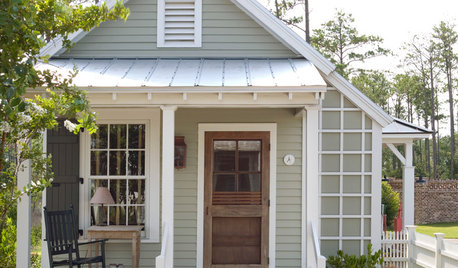
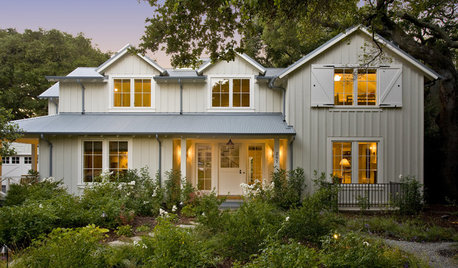

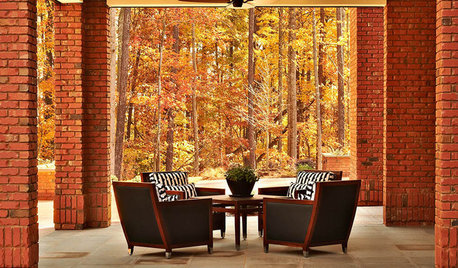
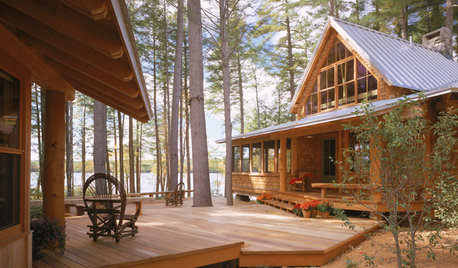
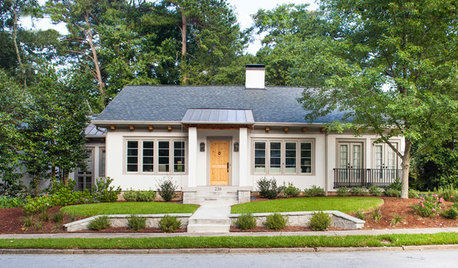

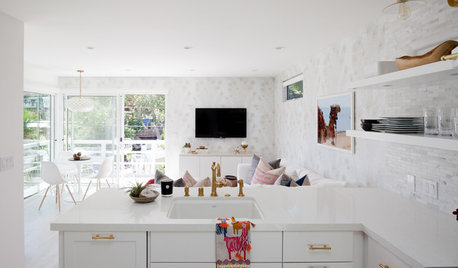
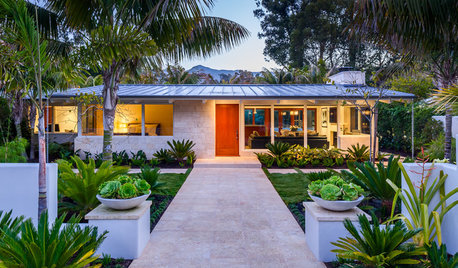
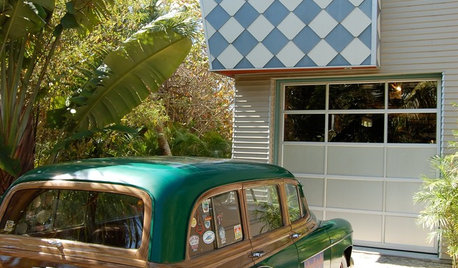







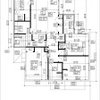
Beth LaPennaOriginal Author